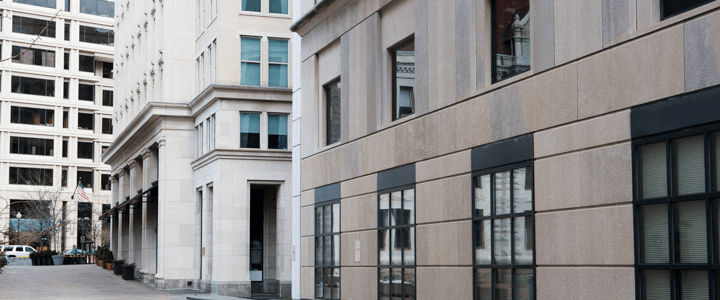There are entire sectors of the internet dedicated to unveiling “the deep state,” I would like to clear up some of the mystery here, but also describe a very critical breakdown of behavior in government. There is no “deep state.” Not in the sense that there is an evil coordinated cabal of people in the U.S. government that are banded together to follow their own secret policy, regardless of who the president is. There are some people in the government, appointed and permanent employees, that sometimes think they know better how the U.S. should act than the President. That is a severe problem, but it doesn’t need a conspiracy theory title.
I have said it before so let me start here; there is only one foreign policy decision maker in the U.S. government, and that is the president. Everyone else in the executive and congressional branches are simply advisors. Congress has some specific roles in the Constitution, but setting the foreign policy agenda for the United States is not one of them. The secretary of state and defense, and the leaders in the intelligence community, all have a lot of power to impact U.S. foreign policy. But they are not the final decision makers.
People that many in the current administration are calling “the deep state” or “Obama holdovers” are simply executive branch employees that don’t agree with the President’s policy; or critically distinct, think that the President is doing something illegal or unethical. Let’s look at those two groups separately.
First, let’s dig into those who think the President is breaking law or precedent. Those who think they have seen something wrong and are reporting it through the proper, legal route are doing something acceptable, that is likely not politically motivated. If you are trying to do the right thing, then do it. That is your obligation to the nation.
But sometimes really good people will make very poor decisions and give out information to the press or to another member of the government in an effort to harm the president while exposing the issue they believe they have found. If you are trying to resolve something you think is unethical, immoral, or illegal, then only use the proper and legal means to do so. In this digital age, everyone will know if you didn’t. If you purposely or accidentally harm the president in a political way, it won’t matter that you were right if you report it in the wrong way.
The second group is more dangerous to our republic. It is not a “deep state” coordinated cabal, but there are actors in the government that try to undermine the president’s decisions because they simply don’t like them. This cannot continue in our republic. I have seen this behavior in the past, too, but not at the level that we are seeing today. If you cannot serve the elected president with 100% integrity every day, you need to resign. You have become a political partisan and are breaking the first code of working in the federal government. That code is that you work just as hard for the president you voted for as the one you didn’t.
A Messy Transition Leads to a Messy Government
How did we get to this place. Each presidential administration transition brings some tension between people that liked working for the last boss, or who are politically opposed to the new boss. This presidential transition was very tense. I was on it for about 60 days until inauguration day, so I saw first hand how awkwardly both sides acted towards each other. There was lots of suspicion and stereotyping going on. Some of it was warranted, some was delusional.
It doesn’t help that many people that left government, both appointees and long-term federal employees, have gone to the press or a publisher to bash the current administration. You have that right, but that doesn’t mean it is good for our republic – especially at the senior levels. Those who sit at the top of executive agencies and then leave the government and attack the president on a daily or weekly basis make it very hard for the president to trust the organization you just left. The senior leaders who hit the speaking circuit are making it harder for the person that replaced them to do their job.
How do we stop partisans from destroying the reputation of the government employees, while still leaving room for legitimate issues to bubble up? This is a tough problem, and much damage has already been done. We all need to step back and reevaluate if our actions, in or outside the government, are making the situation better or worse. If you truly think it is warranted and not politically partisan, then sound-off. If you are not sure, then it is best left for someone else to resolve. There are no easy answers, but I can assure you, the sloppy decision making by many in D.C. and now outside D.C. has damaged the presidency, and by extension the nation.
So, let’s stop using the term “deep state.” Let’s stop all the hashtag resisting. And please stop being a political partisan if you are earning a government paycheck. Think about how you would like to be treated if you were president, and think about how you would like to be treated if you worked for the president. There is plenty of blame to go around, so it’s time to act like the adults our citizens need us to be.




